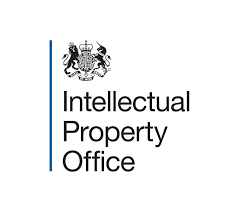 In March, the US Copyright Office issued a statement of policy to clarify its practices for examining and registering works that contain material generated by the use of artificial intelligence technology. At the beginning of April, the UK Intellectual Property Office (UKIPO) released guidance for trademark applications that would apply to Non-Fungible Tokens (NFTs) and Virtual Goods trademarks.
In March, the US Copyright Office issued a statement of policy to clarify its practices for examining and registering works that contain material generated by the use of artificial intelligence technology. At the beginning of April, the UK Intellectual Property Office (UKIPO) released guidance for trademark applications that would apply to Non-Fungible Tokens (NFTs) and Virtual Goods trademarks.
Together, these rulings reflect the rapidly evolving world of digital media content and the concepts of authorship and ownership.
The US Copyright Office has seen an increasing number of “sophisticated artificial intelligence (“AI”) technologies capable of producing expressive material,” and “raise questions about whether the material they produce is protected by copyright, whether works consisting of both human-authored and AI-generated material may be registered, and what information should be provided to the Office by applicants seeking to register them.”
From the ruling: “In the Office’s view, it is well-established that copyright can protect only material that is the product of human creativity. Most fundamentally, the term “author,” which is used in both the Constitution and the Copyright Act, excludes non-humans.” US Courts have upheld this premise.
The Copyright Office continues: “In the case of works containing AI-generated material, the Office will consider whether the AI contributions are the result of “mechanical reproduction” or instead of an author’s “own original mental conception, to which [the author] gave visible form.” The answer will depend on the circumstances, particularly how the AI tool operates and how it was used to create the final work. This is necessarily a case-by-case inquiry.”
“If a work’s traditional elements of authorship were produced by a machine, the work lacks human authorship and the Office will not register it.” However, this doesn’t mean that technological tools can’t be part of the creative process, such as Adobe Photoshop.
The US Copyright Office’s policy goes on to describe how to submit a copyright application for a work assisted with AI, and how to cite the contributions of the AI tool.
UK Intellectual Property Office guidance on NFTs and Virtual Goods
 Also citing the increasing number of applications for intellectual property protection for emerging media, the UKIPO’s guidance on “the classification of non-fungible tokens, virtual goods, and services provided in the metaverse” is aimed at “inform[ing] customers applying for UK trademarks about [its] approach to the classification of (these) types of goods and services.”
Also citing the increasing number of applications for intellectual property protection for emerging media, the UKIPO’s guidance on “the classification of non-fungible tokens, virtual goods, and services provided in the metaverse” is aimed at “inform[ing] customers applying for UK trademarks about [its] approach to the classification of (these) types of goods and services.”
The UKIPO also has received requests for guidance on “the acceptable ways in which these terms can be framed and the correct class in which they fall.”
The UK recognizes NFTs as “unique and unalterable digital authenticity certificates of ownership for virtual or physical assets such as art, collectibles and gaming … which are inextricably linked to the asset (normally a digital asset).” NFTs will not be accepted as a classification term … without an indication of the asset to which the NFT relates, and that “Whilst NFTs relate primarily to digital assets, it is feasible that NFTs can be used to authenticate anything, including physical goods.”
UKIPO on virtual goods and the metaverse
Virtual goods “consist, essentially, of data, such as digital images. However, in the same way that the term “goods,” or “goods made from x” would not be acceptable for physical goods due to such terms not meeting the requirement for clarity and conciseness, “virtual goods will be treated in the same way.” As a result, goods will only be accepted if they are clearly defined,” said the UKIPO. Confused yet?
The UKIPO describes the metaverse as “a form of digital reality, where people can access virtual worlds and interact with others. There is no reason, in principle, why a service capable of being delivered by virtual means, such as video-conferencing, cannot be delivered inside the metaverse. For example, a training service could be provided through, attended, and delivered inside the metaverse. As such, IPO will accept services provided through the metaverse in the same class as more traditional forms of delivery,” with examples of acceptable terms being education and training services, or interactive auctions conducted in the metaverse.
It may not be possible to take the same approach for all “metaverse” services. This is because the manifestation of that service in the metaverse may not fall in the same class as the traditional form of delivery. For example, whilst it may be possible to order food and drink inside the metaverse for delivery or consumption in the physical world, a metaverse avatar “consuming” food and drink within the metaverse (is not the same thing.”
In-depth reading
Copyright Registration Guidance: Works Containing Material Generated By Artificial Intelligence. Ruling. March 16, 2023. US Copyright Office, Library of Congress
Statutory guidance. PAN 2/23: The Classification of non-fungible tokens (NFTs), virtual goods, and services provided in the metaverse. Ruling. April 3, 2023. UK Intellectual Property Office. Published in the US Federal Register.
UKIPO Releases Guidance on Applications for NFTs, Virtual Goods Trademarks. Article. April 3, 2023. The Fashion Law.
Why it matters
Together, these rulings reflect the rapidly evolving world of digital media content and the concepts of authorship and ownership. Lofty stuff indeed.
Because the US Copyright Office has overseen copyright registration since its origins in 1870, it has developed substantial experience and expertise regarding “the distinction between copyrightable and noncopyrightable works. Because the Office receives roughly half a million applications for registration each year, it sees new trends in registration activity.
According to The Fashion Law (article linked above), “The UKIPO’s guidance on NFTs and the metaverse follows from similar efforts by the U.S. Patent and Trademark Office (“USPTO”) and the European Union Intellectual Property Office (“EUIPO”) in August and September 2022, respectively. While the boom in trademark applications for registration in the “quintessential” metaverse classes of goods/services that we saw in late 2021 and early 2022 has stabilized, the relevant trademark bodies are still very much working their way through the large number of web3-focused applications for registration, the majority of which were filed on an intent-to-use basis.












